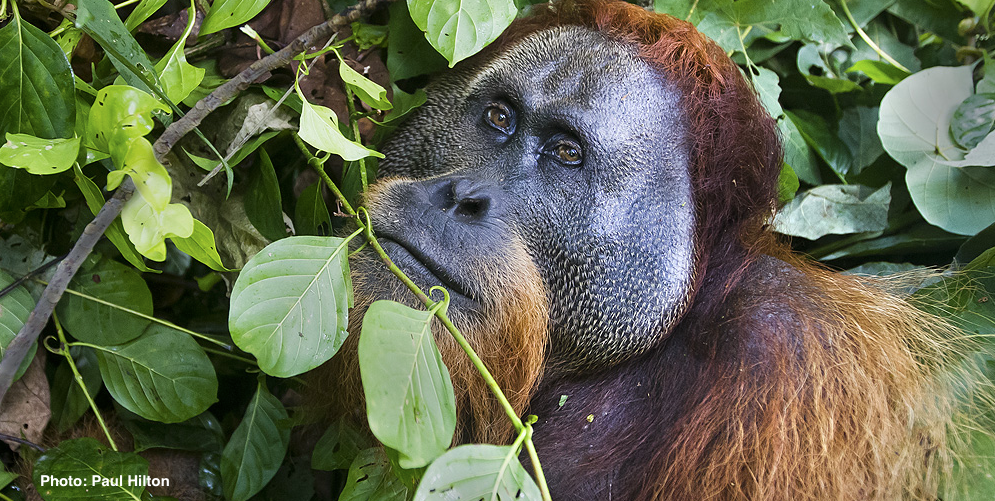One of the few remaining primary forests in West Kalimantan (Indonesian Borneo), Sungai Putri is home to between 750 and 1750 critically endangered Bornean orangutans. This forest is one of the last vestiges of hope for this amazing species, and it is under imminent threat from the expansion of Conflict Palm Oil and pulp plantations.
With estimates of less than 54,000 Bornean orangutans remaining in the wild, the IUCN officially updated their conservation status from “endangered” to “critically endangered” earlier this year. This new classification puts the Bornean orangutan alongside the mountain gorilla, black rhino and Amur leopard as animals that could disappear forever in our lifetime. As the global demand for Conflict Palm Oil pushes plantations deeper and deeper into the rainforests of Malaysia and Indonesia, their grip on survival slips every day.
In order to prevent orangutan extinction in the wild, we must do everything in our power to protect their rainforest home. Which is why it is gravely disturbing to find out that right now bulldozers are destroying the forests of Sungai Putri.
.jpeg'] }})
Destructive clearance for industrial plantations
In blatant disregard for Indonesia’s current moratorium on forest clearing and development on peatlands for palm oil expansion a company named PT. Damai Agro Sejahtera (DAS) is pushing ahead with plans to destroy this critically important rainforest and convert it to Conflict Palm Oil plantations. To make matters worse, another company––PT Mohairson Pawan Khatulistiwa––plans to clear tens of thousands of acres into an industrial pulp plantation.
In addition to its critical biodiversity value, Sungai Putri has deep and extensive peat areas––up to 14.5 meters deep in some places. Protecting peatlands is essential if we’re going to successfully prevent our climate from warming beyond two degrees celsius. The peat fires in Indonesia last year were visible from space and caused widespread environmental and health problems. At their peak in September and October 2015, the fires released more carbon per day than was emitted by the European Union (or the entire US economy).
As RAN’s Executive Director Lindsey Allen recently warned in the Leonardo DiCaprio documentary, Before the Flood, the climate crisis and the deforestation crisis are deeply interlinked. Simply put, one cannot be solved without addressing the other. Half of the world’s forests have already disappeared, and only 20% of what remains is intact. The destruction of the world’s forests is one of the single largest sources of carbon pollution into our atmosphere.
Forests play a critical role in mitigating climate change because they act as a carbon sink—soaking up carbon dioxide and keeping it out of the atmosphere. Take away the forests, and you take away the planet’s key defense against climate change.
